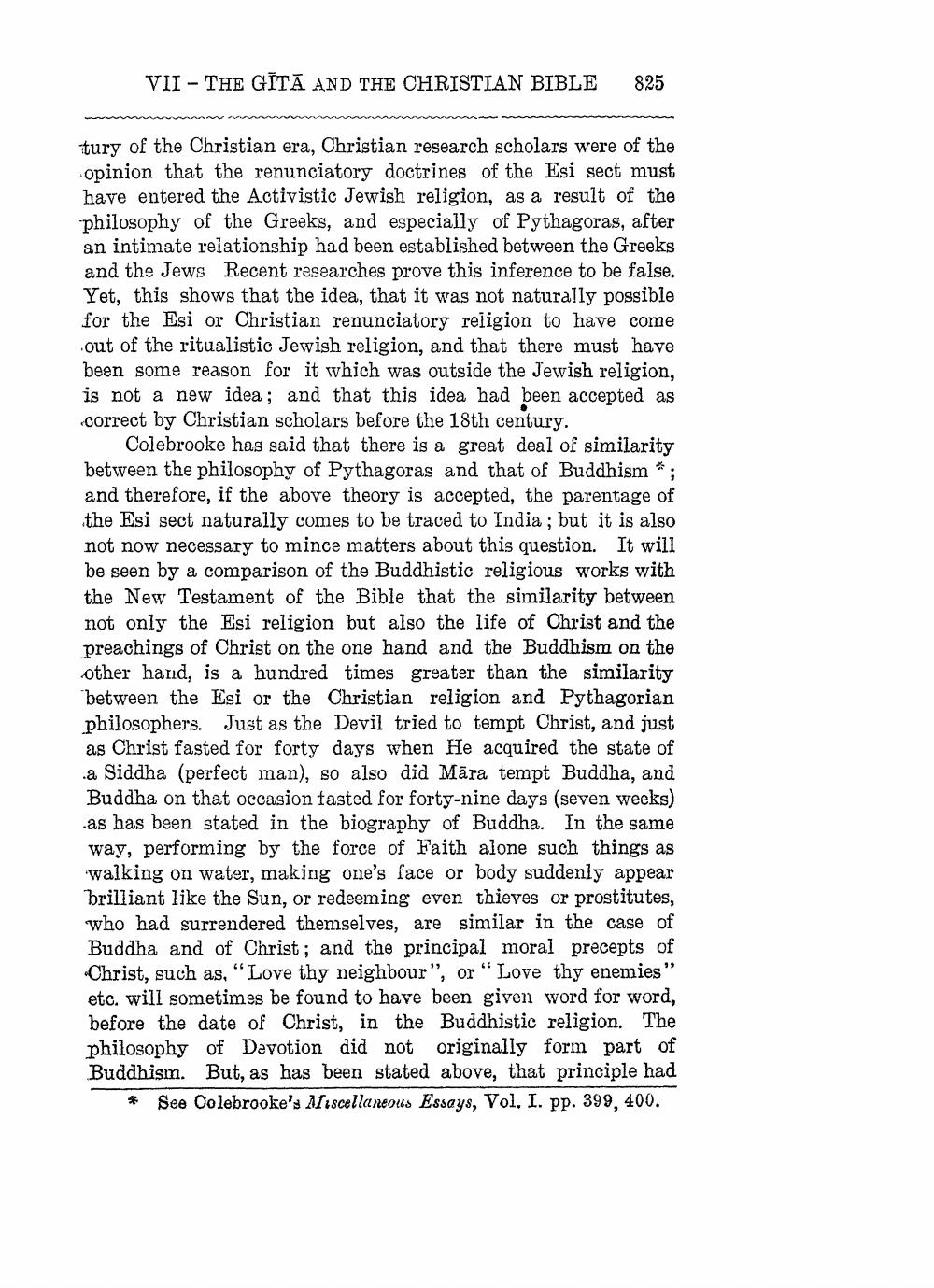________________
VII - THE GĪTĀ AND THE CHRISTIAN BIBLE
825
tury of the Christian era, Christian research scholars were of the opinion that the renunciatory doctrines of the Esi sect must have entered the Activistic Jewish religion, as a result of the philosophy of the Greeks, and especially of Pythagoras, after an intimate relationship had been established between the Greeks and the Jews Recent researches prove this inference to be false. Yet, this shows that the idea, that it was not naturally possible for the Esi or Christian renunciatory religion to have come out of the ritualistic Jewish religion, and that there must have been some reason for it which was outside the Jewish religion, is not a new idea; and that this idea had been accepted as correct by Christian scholars before the 18th century.
Colebrooke has said that there is a great deal of similarity between the philosophy of Pythagoras and that of Buddhism * ; and therefore, if the above theory is accepted, the parentage of the Esi sect naturally comes to be traced to India ; but it is also not now necessary to mince matters about this question. It will be seen by a comparison of the Buddhistic religious works with the New Testament of the Bible that the similarity between not only the Esi religion but also the life of Christ and the preachings of Christ on the one hand and the Buddhism on the other hand, is a hundred times greater than the similarity between the Esi or the Christian religion and Pythagorian philosophers. Just as the Devil tried to tempt Christ, and just as Christ fasted for forty days when He acquired the state of .a Siddha (perfect man), so also did Māra tempt Buddha, and Buddha on that occasion tasted for forty-nine days (seven weeks) as has been stated in the biography of Buddha. In the same way, performing by the force of Faith alone such things as 'walking on water, making one's face or body suddenly appear brilliant like the Sun, or redeeming even thieves or prostitutes, who had surrendered themselves, are similar in the case of Buddha and of Christ; and the principal moral precepts of Christ, such as, "Love thy neighbour", or "Love thy enemies" etc. will sometimes be found to have been given word for word, before the date of Christ, in the Buddhistic religion. The philosophy of Davotion did not originally form part of Buddhism. But, as has been stated above, that principle had
* See Colebrooke's Miscellaneous Essays, Vol. I. pp. 399, 400.




